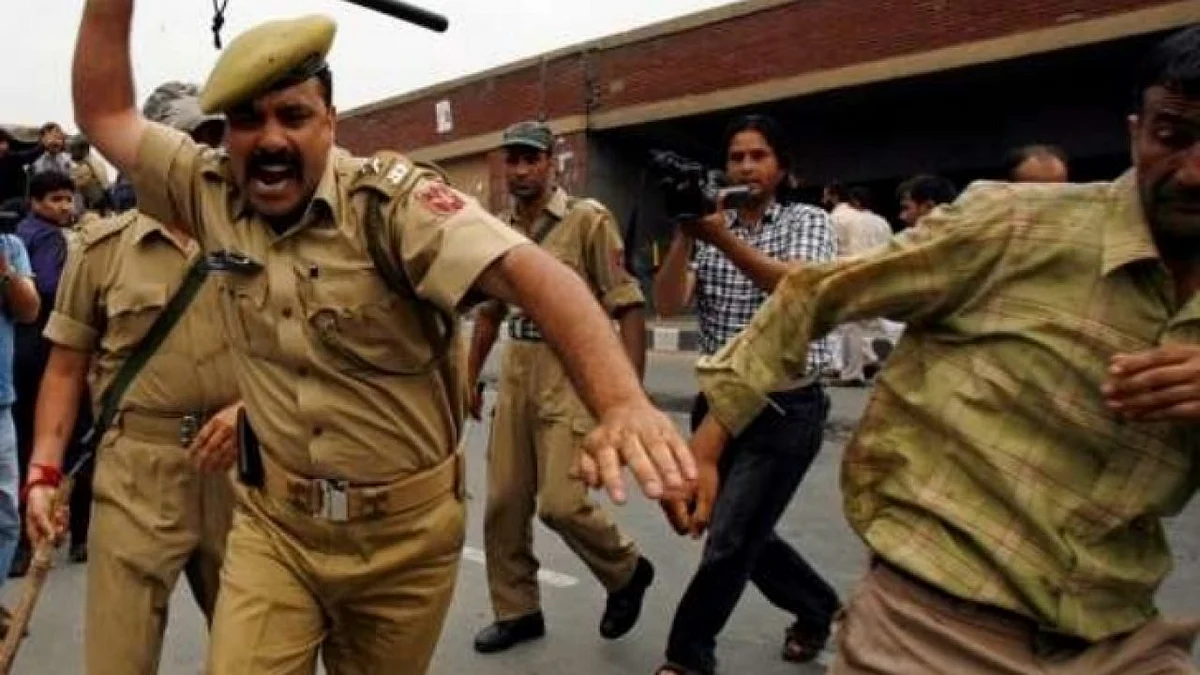From UPSC perspective, the following things are important :
Prelims level: Director General of Police (DGP)
Mains level: persistent challenges in the relationship between the Centre and Opposition-led States, particularly in the context of federal policing.

Central Idea:
The article by R.K. Raghavan discusses the state of policing in India, focusing on a recent conference in Jaipur attended by high-ranking police officers. It highlights the challenges faced by the police in terms of public trust, federal-state relations, and the need for a more inclusive and technology-driven approach. Raghavan emphasizes the growing importance of law enforcement in the country while acknowledging the persistent issues that hinder the improvement of the police force’s image.
Key Highlights:
- The three-day conference in Jaipur centered around contemporary issues in Information Technology for the police.
- Prime Minister Narendra Modi’s interaction with police officers signals the increasing significance of law enforcement.
- Despite honest intentions, the police struggle to gain the trust of the majority, and the public’s perception remains negative.
- The article discusses the discord between the Centre and some Opposition-led States, especially regarding the Indian Police Service (IPS).
- The author points out the need for a balance between federal governance and state autonomy, particularly concerning the Enforcement Directorate (ED).
Key Challenges:
- Lack of public trust and a negative image of the police force.
- Growing discord between the Centre and Opposition-led States, especially regarding the IPS.
- Unequal attention and glory given to IPS officers, limiting opportunities for lower-ranking personnel.
- Politicization of the police force and the challenge of resisting illegal demands from grassroots politicians.
Key Terms/Phrases:
- Information Technology (IT)
- Director General of Police (DGP)
- Indian Police Service (IPS)
- Enforcement Directorate (ED)
- Federal Governance
- Grassroots Politicians
- Policing Hierarchy
Key Quotes:
- “The police have still to earn the trust and confidence of a majority of the populace.”
- “The ‘New Delhi-conceived and managed’ Indian Police Service (IPS) is perceived to be ‘a permanent irritant’ to some States.”
- “It is unfortunate that even seven decades after India’s Independence, citizens do not have a guardian organisation that will reach out to the poorest in the community.”
Key Statements:
- “The police force needs to balance federal governance and state autonomy to avoid conflicts.”
- “The negative public image of the police hinders effective law enforcement.”
- “There is a need for a major restructuring to bridge the gap between higher and lower ranks within the police force.”
Key Examples and References:
- Attacks on ED officers in some places in India pose a danger to relations between New Delhi and States.
- The article mentions the lack of attention given to the constabulary, as IPS officers tend to hog all the glory.
Key Facts/Data:
- The three-day conference in Jaipur took place in the first week of January.
- The article suggests that high unemployment rates in India drive many individuals to opt for a career in the police force.
- The negative public perception of the police force persists even after seven decades of India’s Independence.
Critical Analysis:
- The article acknowledges the positive shift towards technology adoption within the police force but raises concerns about the unequal distribution of attention and opportunities among ranks.
- The author highlights the persistent challenges in the relationship between the Centre and Opposition-led States, particularly in the context of federal policing.
Way Forward:
- The police force should focus on building trust through transparency and community engagement.
- There is a need for a restructuring that ensures opportunities for lower-ranking personnel to prove themselves.
- Policymakers should address the discord between the Centre and States to promote effective law enforcement.
In summary, R.K. Raghavan’s article underscores the need for comprehensive reforms in India’s police force, considering issues of public trust, federal-state relations, and the need for a more inclusive and technology-driven approach. The author suggests that a balanced and transparent approach can contribute to a positive transformation of the police force in the country.
Get an IAS/IPS ranker as your 1: 1 personal mentor for UPSC 2024
